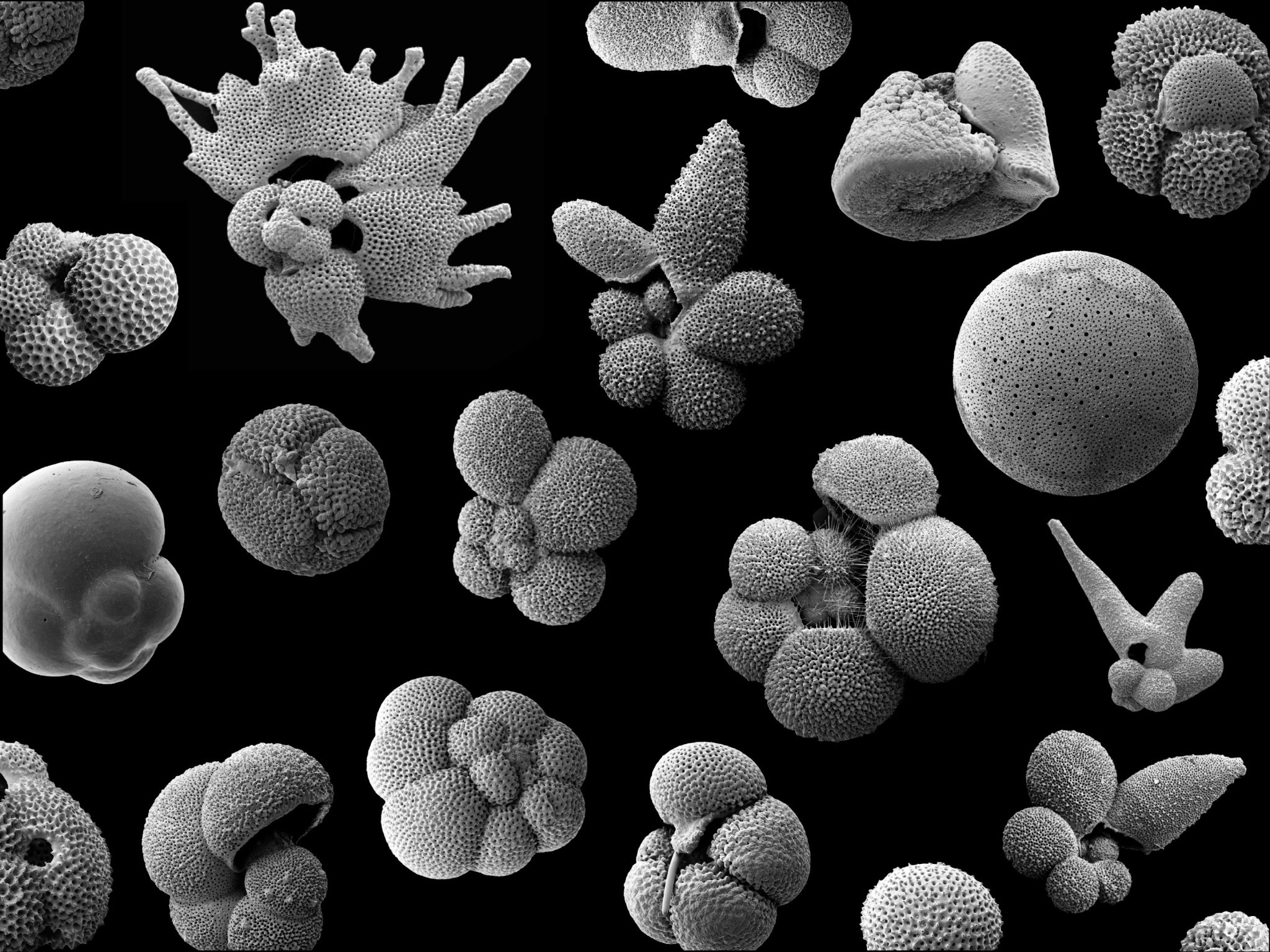Follow us on Google News (click on ☆)
A team of researchers used a database of planktonic foraminifera fossils to discover that major environmental stress events leading to massive extinctions are preceded by subtle changes in the composition of biological communities. These modifications act as early warning signals before the extinctions.

Planktonic foraminifera fossils.
Credit: Tracy Aze / University of Leeds
The results of this study, published in Nature, were conducted by Anshuman Swain, a researcher at Harvard, and Adam Woodhouse from the University of Bristol. They analyzed the structure of ancient marine plankton communities, aiming to create an early warning system for future extinction events in the oceans.
Anshuman Swain stated that their work provides new insights into how biodiversity responds to global climate changes, particularly during periods of global warming.
The team used the Triton database, developed by Woodhouse, to study changes in the composition of foraminifera communities over very long periods. They focused their attention on the Early Eocene Climatic Maximum, a period analogous to current global warming scenarios.
Researchers found that just before an extinction 34 million years ago, marine communities became highly specialized except at high southern latitudes, suggesting a massive migration of these micro-plankton to higher latitudes. These community changes are visible in the fossils well before the actual extinctions.
Swain emphasizes the importance of monitoring the structure of biological communities to predict future extinctions. The results of foraminifera studies open up perspectives for other groups of organisms, including marine life, sharks, and insects, potentially profoundly enhancing our knowledge in the field of paleo-computer science.